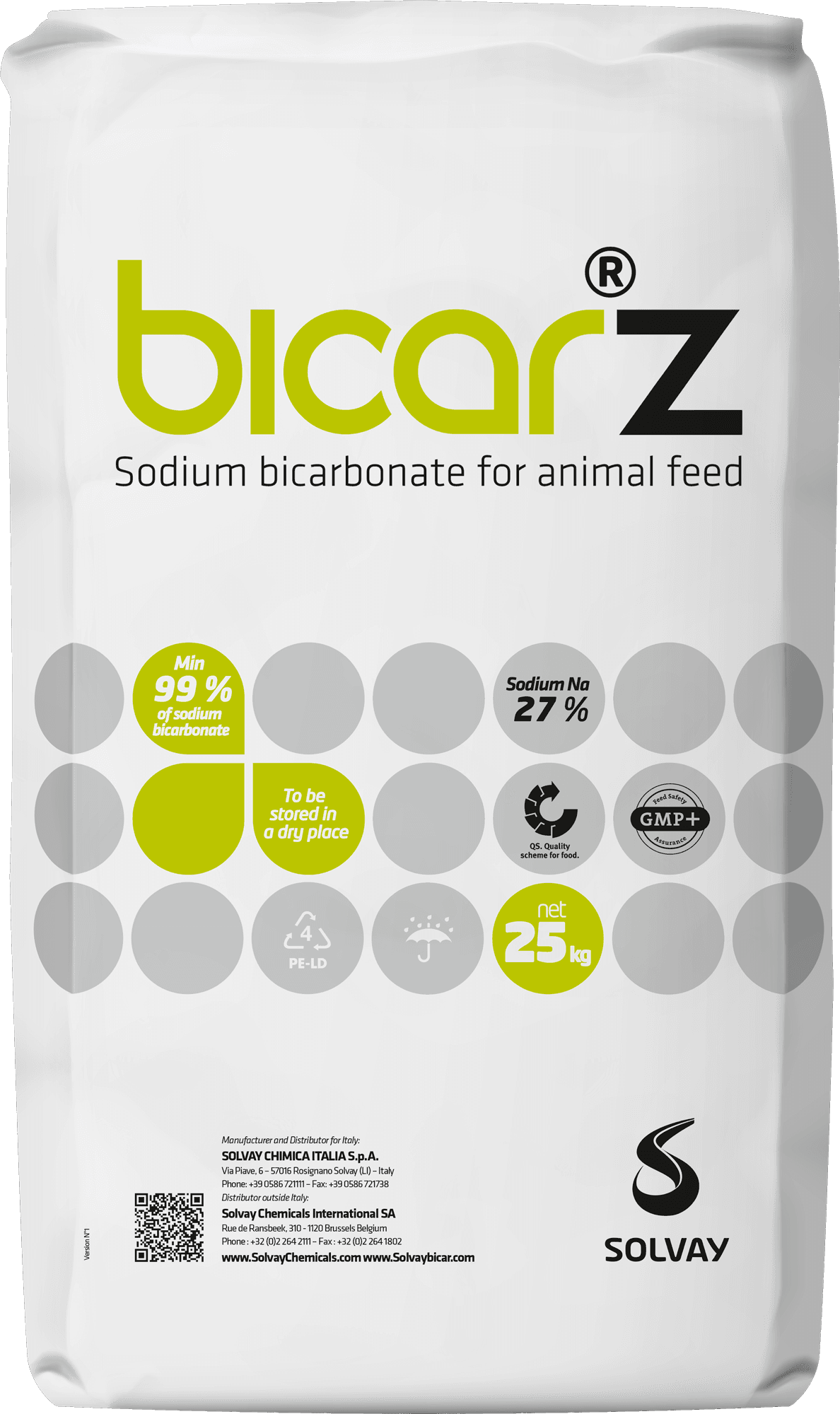Sodium bicarbonate (NaHCO3) is a raw material widely used in animal feeds. By balancing the diet sodium bicarbonate improves the performance and wellbeing of our livestock. In ruminants it is known for its buffering capacity by stabilizing rumen pH. In monogastrics sodium bicarbonate is effective in balancing the diets, by optimizing the electrolytic balance.
Ruminants
The rumen is a big fermentation vessel containing big populations of micro-organisms. Feed entering the rumen is converted into volatile fatty acids, which is used as an energy source for the animal. These fatty acids have a negative effect on rumen pH. To a certain extent the animal is able to maintain a normal rumen pH, by buffering the rumen with bicarbonate from saliva. High producing animals ingest high amounts of feeds to meet their energy requirement. Often this is effecting the rumen pH negatively and rumen acidosis is a big risk. Rumen acidosis can lead to reduced appetite, lower wellbeing, reduced feed efficiency and loss of production. On the long term rumen acidosis can cause reduction in body condition, reduced locomotion or lameness.
Next to high producing animals, ingesting high amounts of feeds there are also several other factors influencing the rumen pH. E.g. also heat stress, big changes in the feed formula, stress or lack of a good source of fiber can increase the risk of rumen acidosis to a large extent.
Addition of Bicar®Z sodium bicarbonate in the feeds of ruminants reduces the risk of rumen acidosis. By providing a source of bicarbonate the buffering capacity of the rumen is increased and thus the rumen pH stabilized.


